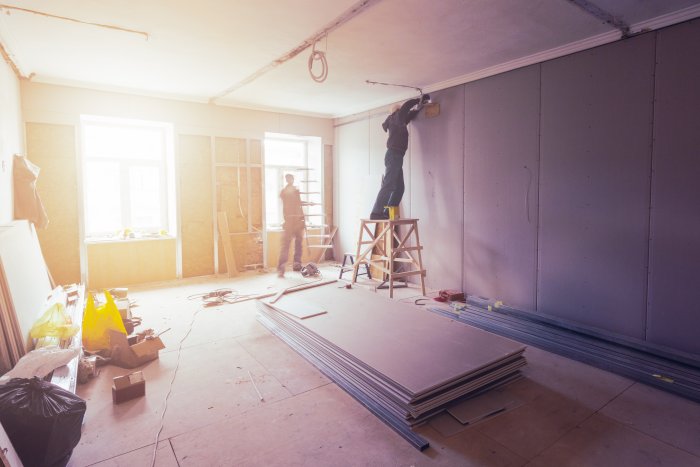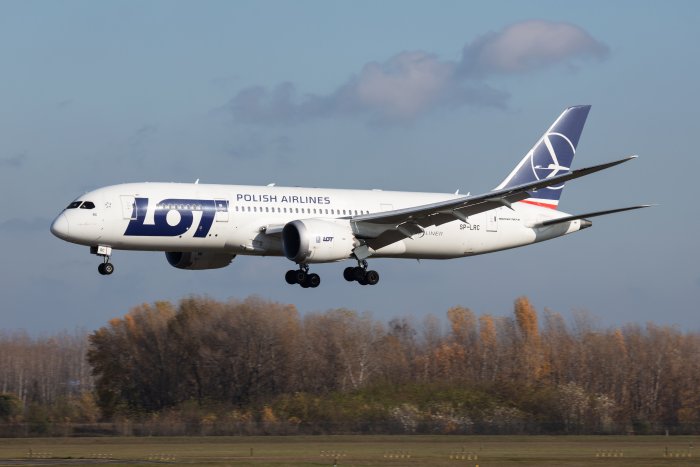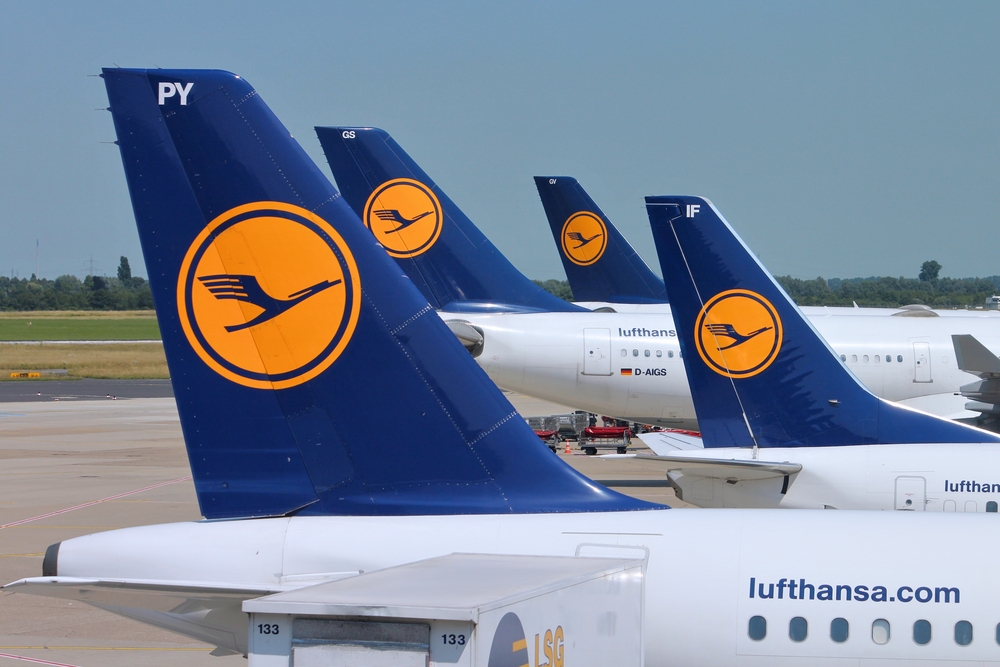Michael O’Leary: ‘Boeing Delays Remain our Greatest Challenge’

Ryanair CEO Michael O’Leary promotes the number of flights from Budapest in front of Gellért Hill.
Ryanair boss has bemoaned an aircraft delivery bottleneck but defends Boeing’s safety record, even as he fears a state-owned Budapest airport operator would raise fees.
Ryanair would like to launch yet more new air links to Hungary, but production troubles at Boeing plants in the United States mean the low-cost carrier cannot obtain aircraft fast enough, CEO Michael O’Leary has said.
In Budapest on Feb. 20 to announce six confirmed new routes and other schedule enhancements for the summer timetable (as outlined in our previous issue), O’Leary was quizzed regarding the paucity of flights to countries like Switzerland, France and Germany from the Hungarian capital.
“We have no plans to go to Switzerland. It’s outrageously expensive, and they don’t particularly want Ryanair flying there. They want to protect Swissair from competition,” he replied.
As for Germany, commercial aviation there is struggling “because the government is raising taxes and the airports are raising fees, which is why this morning the German airports’ association released January traffic figures that said traffic in Germany is 77% of what it was in January 2019,” he argued. More optimistically, he predicted the country would “see the error of its ways in the next year or two, begin to reduce airport fees, and then you will see more connections.”
But O’Leary stressed Budapest has a “great name,” represents “a great tourist destination,” and is “a very easy sell,” which deserved more connections, including France and “certainly” should be better linked to Spain and northern destinations such as Poland and the Baltics.
However, the slow delivery of new Boeing 737 aircraft from the United States is hampering expansion.
Aircraft Constraints
“One of the challenges we have this summer [is that] we are constrained by aircraft. We had hoped to get 57 aircraft from Boeing by June, but we'll be lucky if we get 45-50,” he said.
Mention of the U.S. aerospace company elicited questions from journalists aware of troubles with the latest Boeing 737 iterations in recent years. (These include two crashes in 2018-19, which saw the entire Boeing MAX fleet grounded for some 20 months, and the loss of a door plug on an Alaska Airlines flight this January. That incident involved no loss of life, and the aircraft landed safely.)
Did Ryanair have safety concerns given that both major airlines serving Budapest (Ryanair and Wizz Air) have planes that “fall out of the sky, or are just falling apart,” one belligerent journalist demanded?
“Look, neither Boeing nor Airbus have planes falling out of the sky. These are the safest aircraft that have ever been made!” O’Leary retorted.
“The A320 and 737 have flown more flight hours than any other aircraft ever. We completed almost 1.1 million flights last year on 737s across Europe, so planes are not falling out of the sky, and I have no concerns about the safety of those aircraft the way we operate them,” he said.
Airbus has had problems with the engines on the A320, and Boeing has had quality control problems at both their Wichita and Seattle manufacturing plants, O’Leary admitted. To alleviate these issues, Ryanair has nearly 30 engineers seconded to both locations to inspect the production quality from start to finish.
“We should not have to invest that kind of money in overseeing Boeing’s quality, but Boeing’s quality, not unlike Airbus on the engine side, has been problematic since they re-started production post-COVID,” O’Leary said, emphasizing in response to a Budapest Business Journal question that the inspectors concerned were professional engineers (and not technicians) and full-time employees of the airline.
O’Leary Complaints
No Ryanair press conference in Budapest would be complete without the man from County Cork sniping against “high-cost” competitor Wizz Air and, in particular, criticism of the Hungarian government for introducing its environmental tax on short-haul aviation traffic.
“The government, seeing the success of traffic here in Hungary, has introduced this bogus enviro tax, and they’re now going to purchase back the airport with a bunch of French monopolists, which is not a good recipe for the future growth of Budapest,” he complained. “But we’re here now, and we’re not going to retreat backwards.”
Ignoring the fact that it is difficult to retreat forwards, one journalist asked if the expected nationalization of Budapest Airport would result in higher landing fees.
“I expect if the state takes over Budapest Airport, particularly in partnership with the French company Vinci, [.…] the charges at Budapest airport will rise. You will have an even higher cost environment here in Hungary; you’ll have a higher-charge, monopoly airport that is not committed to growth,” he concluded.
Vinci, headquartered in France, operates more than 70 airports worldwide, including some, such as London Gatwick and Belfast International, served by Ryanair.
The BBJ requested a response from Vinci on O’Leary’s criticism but did not receive an answer by our deadline.
Editorial update: Ryanair announced on March 1 that it now expects to receive only 40 new aircraft from Boeing by the end of June and, as a result, would be reducing the frequency of flights on some routes this summer. However, these cuts would not affect any of the new routes or enhancements already announced for services to and from Budapest, a spokesperson confirmed to the BBJ.
Ryanair: What’s new for Budapest?
Ryanair will fly to six new destinations from March 31, the start of the summer schedule. Leading the pack is Milan Malpensa, with six flights per week, followed by Tirana, the capital of Albania, with three weekly flights.
Trieste (northern Italy), Frankfurt Hahn, Faro (southern Portugal) and the Greek island of Skiathos will each see two flights per week.
In addition, several current routes will see additional flights, notably Copenhagen and Rome (each with three extra weekly flights) and Birmingham, United Kingdom, with one extra.
The Belfast route, introduced last year with two weekly flights and allowing Hungarians to spend time in what O’Leary optimistically described as the “sun-get-away destination” in Northern Ireland, is “doing fine,” according to a Ryanair spokesperson. Still, there are no plans to enhance the current service levels.
As a result of the new schedules this summer, Ryanair expects to be the number one airline in Budapest in 2024, with some five million passengers, up 22% from 4.1 million last year.
This article was first published in the Budapest Business Journal print issue of March 8, 2024.
SUPPORT THE BUDAPEST BUSINESS JOURNAL
Producing journalism that is worthy of the name is a costly business. For 27 years, the publishers, editors and reporters of the Budapest Business Journal have striven to bring you business news that works, information that you can trust, that is factual, accurate and presented without fear or favor.
Newspaper organizations across the globe have struggled to find a business model that allows them to continue to excel, without compromising their ability to perform. Most recently, some have experimented with the idea of involving their most important stakeholders, their readers.
We would like to offer that same opportunity to our readers. We would like to invite you to help us deliver the quality business journalism you require. Hit our Support the BBJ button and you can choose the how much and how often you send us your contributions.









